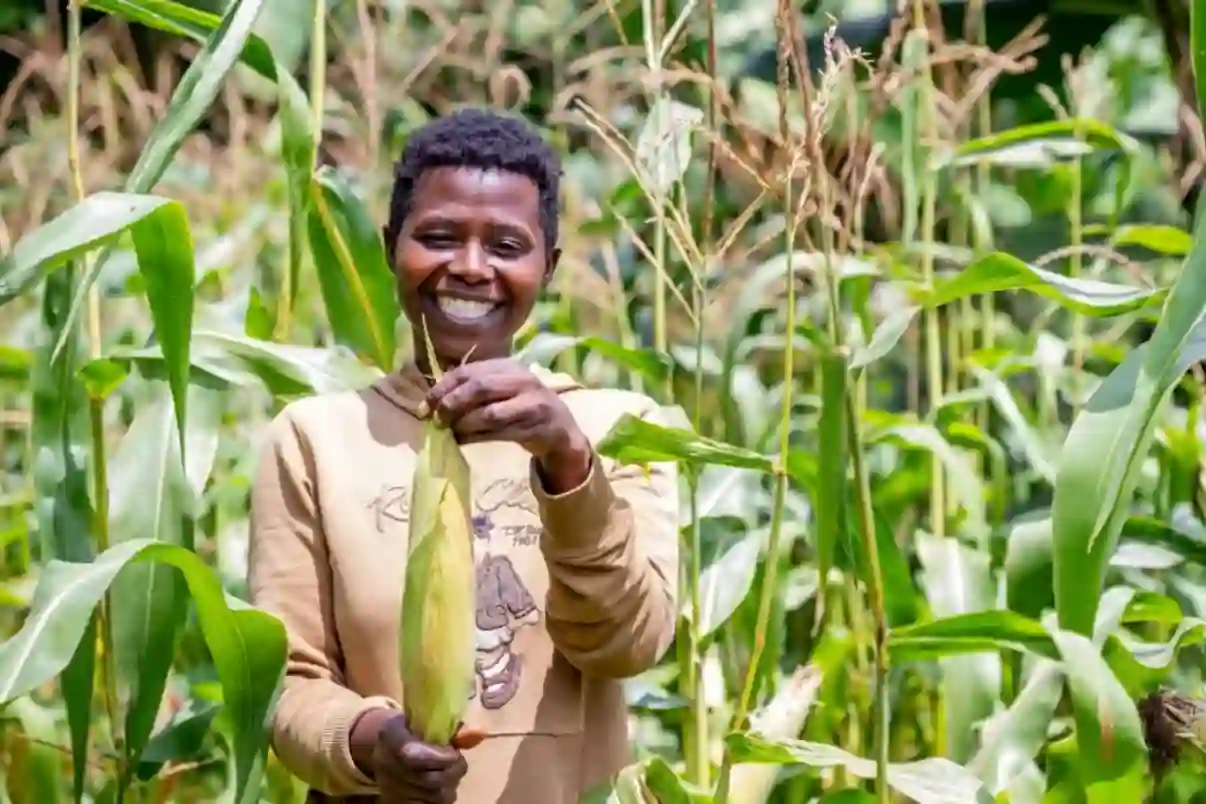Over one-third of Nigeria’s jobs are in agriculture, yet the sector’s heavy dependence on rainfall continues to threaten food production and rural livelihoods. In response, a World Bank-supported initiative is helping Nigerian farmers adopt improved practices, creating a foundation for resilient and smart agriculture that promises to secure the nation’s food future.
Agriculture remains one of Nigeria’s most critical economic sectors, employing millions of people and contributing nearly a quarter of the country’s Gross Domestic Product. However, unpredictable weather patterns, frequent floods, and prolonged dry spells have made farming increasingly uncertain. With less than one percent of Nigeria’s farmland currently irrigated, most smallholder farmers still depend entirely on rainfall for cultivation, leaving them vulnerable to climate shocks.
Recognizing this challenge, the Federal Ministry of Water Resources and Sanitation, with financing from the World Bank’s International Development Association (IDA), launched the Transforming Irrigation Management in Nigeria (TRIMING) project. The initiative aims to expand and modernize irrigation systems, improve water management, and upgrade critical agricultural infrastructure across several states.
In Kano State, northern Nigeria, farmer Mustapha Adamu recalls how tough it was a decade ago. “Things were bad here,” he says, reflecting on the 6,000 hectares of farmland that were once difficult to cultivate due to poor access to water and degraded soil. “Farming this land was a tough task.”
That situation has changed dramatically. With the TRIMING project’s support, farmers in Mustapha’s area now have access to improved irrigation systems that allow them to grow crops more reliably and efficiently. “The project has helped us manage water better,” he adds. “Now we can farm more regularly and make good use of the land.”
The TRIMING project rehabilitated and expanded irrigation networks across 43,400 hectares, producing enough food to feed over one million people. It also helped establish and strengthen more than 800 Water Users’ Associations (WUAs), which now play a crucial role in managing water distribution and maintaining infrastructure. Mustapha, who leads one of these associations, explains that farmers now collaborate more effectively to allocate water fairly and ensure canals remain clean and functional.
In nearby Jigawa State, farmer Musa Idris has also seen the difference that improved irrigation makes. “Before the project, we faced many challenges with water,” he says. “We used to get about 15 to 20 bags of rice per acre. Now, we get between 30 and 35 bags. We are preparing the land to plant tomatoes and rice, and after that, we will get ready for wheat.”
These gains have extended beyond higher yields. Communities have benefited from rehabilitated access roads, better water drainage, and improved dam safety. Farmers are now producing more food with less uncertainty, even as the effects of climate change continue to pose threats across northern Nigeria.
Women farmers have also experienced significant transformation. In Kano State, Hajiya Ramatu, a farmer and deputy leader of a women’s group, recalls the lack of support for irrigated farming before the project began in 2014. “That has changed, women are actively involved now,” she says proudly, pointing to a field of rice ready for harvest. “You can see this lane of rice, we are going to make some good money from it.” Her group expanded its farmland from 22 to 37 hectares after gaining access to reliable irrigation.
Improved infrastructure has opened more opportunities for rural women and youth. Better farm roads have made it easier for farmers to transport produce to local markets, reducing post-harvest losses and improving income. Ramatu shares how these benefits have transformed her family’s future. “My son is now attending university, something that would have been impossible before,” she says.
With over 70 percent of Nigeria’s population under the age of 30, job creation in agriculture remains a pressing need. Reliable irrigation and modern farming practices can help absorb this growing workforce, while increasing food security and supporting economic growth.
The TRIMING project also received technical support from the Global Water Security and Sanitation Partnership (GWSP), which contributed to dam safety programs, sediment control, and sustainable water management strategies. By integrating technology, infrastructure, and community-based resource management, the project is setting new standards for agricultural resilience.
Looking ahead, Nigeria’s government plans to scale up these efforts through the Sustainable Power and Irrigation for Nigeria project, another World Bank-supported initiative under the IDA. This follow-on program aims to expand the benefits of TRIMING, enabling more farmers to access irrigation systems and further strengthen water governance.
With the country’s population projected to reach 400 million by 2050, the government’s target to irrigate 500,000 hectares by 2030 is part of a broader plan to boost food production and enhance rural livelihoods. By increasing irrigation coverage and adopting smarter water management, Nigeria hopes to ensure food security and reduce the risks caused by climate variability.
Globally, food demand is expected to rise by more than 50 percent by 2050, while the world’s population approaches 10 billion. Experts say irrigation could help farmers produce more with less land and water, providing a practical response to rising demand and environmental pressures. Across many developing countries, the World Bank continues to support such projects to ensure sustainable agricultural growth.
In Nigeria, the transformation is already visible. Farmers like Mustapha Adamu, Musa Idris, and Hajiya Ramatu represent the new face of modern agriculture, producers who can rely on stable water supply, increase their harvests, and build stronger communities. “Before, we didn’t know if we would have a good season or not,” says Mustapha. “Now, with irrigation, we have more control, more confidence, and more food to feed our people.”

